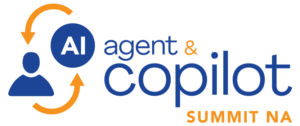Transforming Knowledge Work: The Impact of ‘On-Demand Intelligence’ through AI

The Future of AI in Knowledge Work
Artificial Intelligence (AI) is increasingly becoming a pivotal part of the workplace, particularly in knowledge work where data and information are the main currencies. This article explores how AI is transforming the dynamics of professional settings, particularly in terms of efficiency, creativity, and collaboration.
Understanding Knowledge Work
Knowledge work refers to jobs that primarily involve the use of knowledge, skills, and intellectual capabilities rather than physical labor. Professions such as software development, content creation, research, and consulting are key examples of knowledge work. Here’s how AI is reshaping these areas:
1. Enhanced Productivity
AI tools are designed to assist knowledge workers in completing tasks more efficiently. For instance:
- Automation of Repetitive Tasks: AI can handle routine tasks such as scheduling, data entry, and preliminary data analysis, allowing professionals to focus on more complex and creative responsibilities.
- Smart Data Management: AI algorithms can analyze large sets of data quickly. This reduces the time spent on data analysis, helping teams make informed decisions faster.
2. Improved Creativity
AI’s ability to analyze patterns and generate new ideas can significantly enhance creativity in knowledge work. Here’s how:
- Idea Generation: AI platforms can provide suggestions based on existing data, helping content creators brainstorm and develop new concepts.
- Design Support: Tools like AI-driven graphic design software allow designers to create unique visuals by recommending styles and elements based on current trends.
3. Enhanced Collaboration
AI tools can facilitate better teamwork and cooperation among professionals. Consider these benefits:
- Real-time Collaboration: AI-driven platforms enable teams spread across different locations to collaborate seamlessly, allowing for immediate feedback and brainstorming.
- Knowledge Sharing: AI can curate and suggest relevant information to team members, ensuring that everyone has access to the most important data. This fosters a culture of shared knowledge, which can lead to innovative solutions.
AI in Different Knowledge Work Fields
Each field within knowledge work has unique applications for AI. Let’s look at a few:
Software Development
In software development, AI assists in:
- Code Review: AI tools can evaluate code more efficiently than human reviewers, catching bugs and suggesting optimizations.
- Predictive Analytics: AI can predict user needs based on historical data, assisting developers in creating more user-friendly software products.
Content Creation
In content creation, AI is used for:
- Writing Assistance: AI writing tools can help generate drafts or suggest edits, making the writing process smoother.
- SEO Optimization: AI can analyze and suggest keywords that improve online visibility, enhancing reach and engagement.
Research and Development
In R&D, AI plays a crucial role by:
- Data Analysis: AI tools can sift through large volumes of research data to identify trends and insights quickly.
- Simulation and Testing: AI can simulate various scenarios, allowing researchers to validate their theories and ideas more quickly than traditional methods.
The Role of AI Tools
Many AI tools are designed specifically for knowledge workers, providing invaluable assistance. Some notable examples include:
- Microsoft 365 Copilot: This tool integrates AI directly into Microsoft applications, helping users create documents, presentations, and analyses with minimal effort.
- Google Workspace AI Features: Google has incorporated AI across its suite of tools, facilitating smarter email responses and document editing.
Challenges and Considerations
While AI brings numerous advantages, it also poses challenges:
- Job Displacement: There’s a concern that automation could lead to job loss in certain sectors.
- Data Privacy: The use of AI often involves data collection and analysis, raising questions about privacy and ethical considerations.
Final Thoughts
AI is rapidly changing the landscape of knowledge work, bringing forth both opportunities and challenges. As professionals adapt to these technological advancements, it is essential to navigate this evolution thoughtfully to harness the full potential of AI in the workplace.





